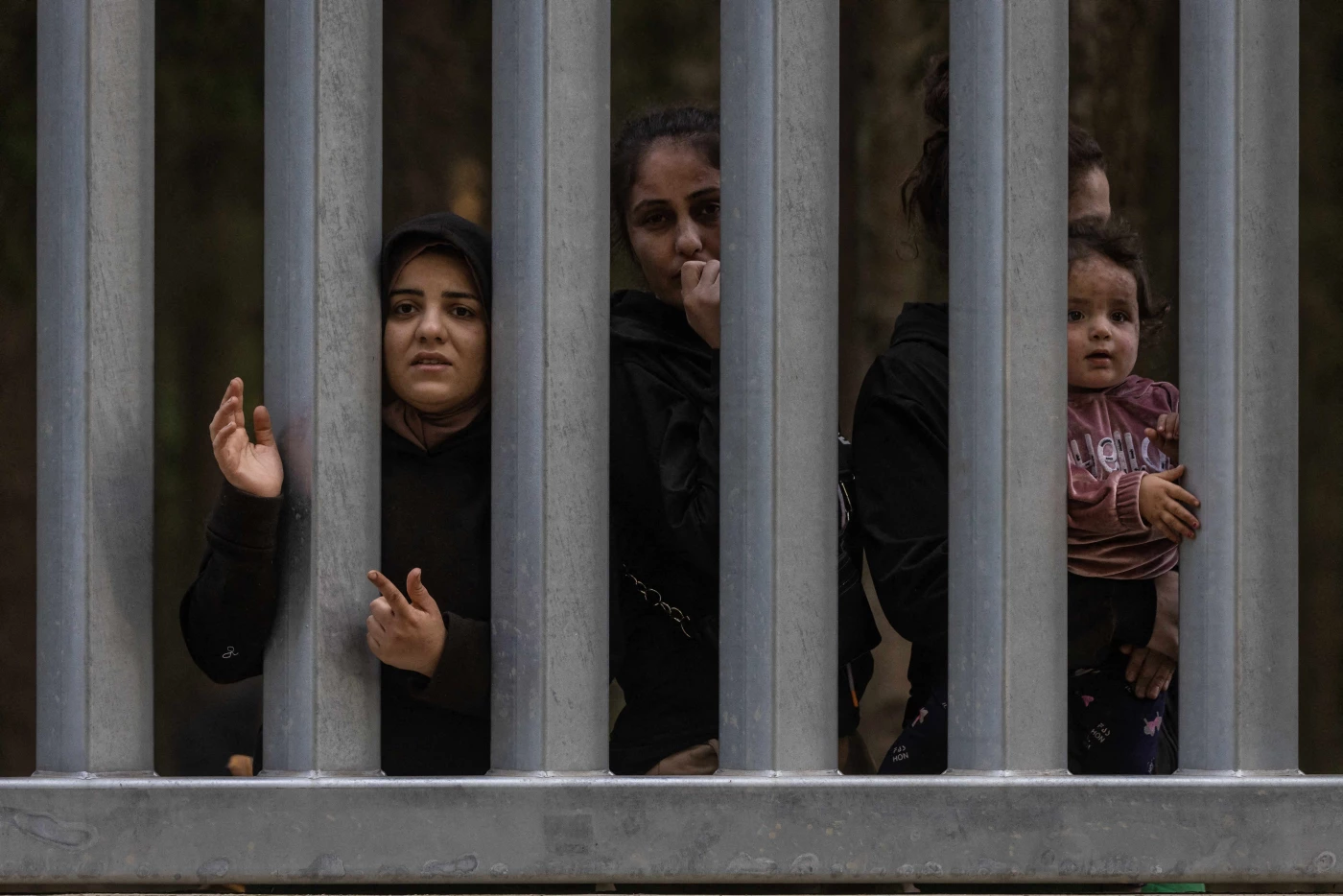The focal point of the Immigration Management Conference in Iraq on Saturday was Iraq's efforts to address the root causes of migration from the country with multiple Iraqi officials delivering speeches on the topic.
Prime Minister’s Advisor for Human Rights Affairs, Zidane Khalaf, outlined the Iraqi government's initiatives to address internal and external displacement at the Immigration Management Conference in Iraq.
He emphasized the government's commitment to combating the root causes of migration and ensuring the return of displaced Iraqi.
Khalaf noted that the government is prioritizing the rights of Iraqi citizens, focusing on education, health, social care, poverty reduction, job creation, and the protection of women and children.
He stated, “Iraq has witnessed, over the past years, the migration of many Iraqi citizens, including scientific and literary competencies, outside Iraq due to wars, terrorism, and the difficult circumstances that Iraq has witnessed, so the curriculum included the government program’s priorities are to benefit from the capabilities of the Iraqi community in Diaspora countries and try to return them to Iraq."
He added that among steps taken by the Prime Minister’s Office to reduce migration is Cabinet Resolution No. 24/7, which established a committee to close displacement camps and facilitate the voluntary return of displaced persons.
The committee addresses lost identification documents, security audits, job opportunities, and increasing return grants, along with directing reconstruction funds to build homes for returnees.
The government is also working to restore services in Sinjar by reopening service departments and allocating 1,000 job contracts.
Additionally, over 31 previously stalled projects have been restarted, marking significant progress in the district's rebuilding.
Support for Yazidi women survivors includes increasing monthly salaries and distributing land bonds to survivors and other minorities, ensuring long-term stability and support for these communities.
The government is simplifying procedures for disbursing compensation to martyrs and the wounded under Law No. 20 of 2009, providing timely support.
Additionally, 1,500 police officers from the Yazidi community and other components have been appointed to enhance local security.
International cooperation is crucial, with the government coordinating with international organizations to leverage grants and programs for rebuilding Sinjar and the Nineveh Plains, enhancing the effectiveness of these initiatives.
Ghulam Isaczai, Deputy Special Representative, Resident Coordinator of the United Nations, and Humanitarian
Coordinator in Iraq, confirmed Iraq's commitment to migration governance reforms.
At the Immigration Management Conference in Iraq, Isaczai commended the Ministry of Migration and Displacement for its efforts under the Global Compact for Migration, noting the challenges and opportunities created by Iraq's recent displacement crises and varied migration patterns.
He highlighted the close cooperation between the United Nations and the Iraqi government, emphasizing the launch of a national mechanism in December 2022 as a significant milestone demonstrating Iraq's commitment to facilitating "safe, orderly, and regular migration," as well as dignified return and sustainable reintegration.
The partnership between the UN Network on Migration in Iraq, the International Organization for Migration, and the Iraqi government ensures support for managing migration in line with the Global Compact and Sustainable Development Goals.
Isaczai praised Iraq's strategic role in supporting the Global Compact alongside Egypt and Morocco, reflecting the successful completion of the second Migration Governance Indicators assessment and policy commitments earlier this year.
He concluded by stressing the "importance of reviewing progress, identifying challenges, and exploring opportunities to enhance regular migration pathways and address irregular migration."
Iraqi Minister of Migration and Displacement, Evan Faeq Jabro, also highlighted Iraq's significant strides in implementing the Global Compact for Migration during the Immigration Management Conference.
She emphasized the government's focus on facilitating the safe return and sustainable reintegration of skilled individuals, crucial for the country's development.
Jabro acknowledged Iraq's complex migration challenges stemming from years of wars and economic crises, exacerbated by terrorist threats like ISIS.
She underscored the importance of migration management as a top priority for the Iraqi government, requiring collaboration among various ministries and stakeholders,
The Minister praised the support from international organizations and donors in implementing Iraq's national plan for migration management.
This plan, aligned with the Global Compact for Migration, reflects Iraq's commitment to safe, orderly, and regular migration.
Jabro expressed readiness to collaborate with international partners to ensure safe migration practices that benefit Iraqis.
She emphasized the need for ongoing international support to sustain Iraq's progress in migration governance and development.
"Overall, Iraq's efforts under the Global Compact for Migration aim to address migration challenges, facilitate safe returns, and harness the skills of returning individuals for the nation's growth," she concluded.



 Facebook
Facebook
 LinkedIn
LinkedIn
 Telegram
Telegram
 X
X


